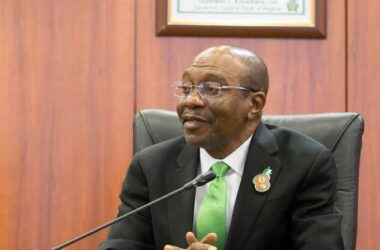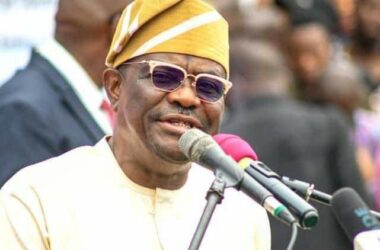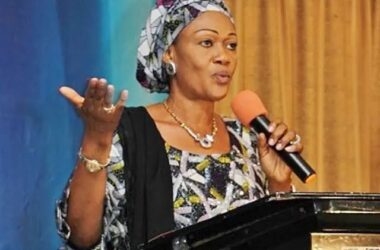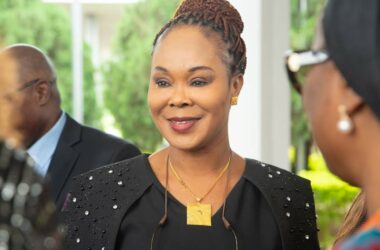Being stupendously wealthy – not just ‘rich’ or ‘comfortable’ – gives one an entree into a world inhabited by only a select few who seem to breathe a rarefied air different from their fellow mortals – the proverbial 1% of the human race – whose business interests (as demonstrated by their investment portfolios), their lifestyle choices and even their leisure-time pursuits are the stuff of which dreams, and the fervent aspirations of the less-endowed, are made.
This 1% (who, according to a recent Forbes, estimate, control over 45% of global personal or household income) are people who have moved well beyond the state of merely having a lot of possessions that enable them to lead a comfortable life (a happy state, no doubt) to that glorious realm of having SUSTAINABLE and LASTING wealth. They have moved from the (admittedly enviable) position of having a significant income (though in some cases without much in the way of accumulated assets) to the Magic Circle of having a significant net worth and a number of passive income sources, whose extent has the potential to span generations. A famous American comedian once made the distinction between being wealthy, being rich/comfortable and being poor by saying that you’re wealthy if your name is on the building, rich if your name is on the office door … and poor if your name is on your shirt.
If the rich are rich alike, to quote the famous saying by Englishman William McPherson, then the truly loaded are kindred spirits. How so? Their astronomically elevated financial advantages can be seen in the similarities they share, which only they can afford, and by which they recognize one another – namely, the luxury items they purchase; the pleasures and entertainment they consume; the games they play; the places they go to for business or for pleasure (and the mode of transportation that gets them there), the company they keep (usually the equally wealthy or even wealthier) and, most significantly, their residences and the part of town those residences are located in, among other indices.
By every possible estimation, Dr. Mike Adenuga, GCON, Chairman of Globacom Nigeria Limited, and Chairman of Conoil Producing Limited, belongs squarely to the global 1%. His name is, literally, on the proverbial ‘buildings‘ that make up his amazing world – his businesses, his lifestyle and leisure totems, and his living spaces. Reputed in some influential quarters to be the second richest man in Nigeria (after the Chairman of Dangote Group, Alhaji Aliko Dangote), and one of the 400 richest individuals in the world, Forbes Magazine estimates his net worth as somewhere in the region of $6.2b.
Beyond these mind-boggling but perhaps abstract figures, and beyond the impact his businesses have had on the economy of Nigeria and the West African subregion, it is perhaps in his living spaces that the scale of Adenuga’s vast wealth can be truly appreciated by the average observer.
And talking about his living space, while it is true that he owns a number of residences around the country and beyond her shores, it is his majestic sprawl on the upscale Banana Island axis of Lagos that can rightly be called the jewel in the crown of his real estate possessions. This breathtaking masterpiece of an estate, and it’s location, epitomise the very essence ofmaterial abundance and class.
An artificial island off the foreshore of Ikoyi in Lagos State, Banana Island derives its name from its curvature and shape, which resemble the fruit. A meticulously planned development, it comprises residential, commercial and recreational buildings and facilities. With its scenic views and tastefully designed estates which boast some of the most cutting-edge architectural innovations anywhere in the world, as well as first-rate amenities, Banana Island is, quite simply, the pinnacle of wealth on public display. An enchanting paradise of stunning natural scenery, the estate exudes a sense of serene tranquility and an environment which provides its residents with an unrivaled lifestyle of sophisticated refinement and elegance.
For the wealthy who make up its population, Banana Island is not just a place of refuge, rest and relaxation, it is a status symbol, a cachet that puts a certain stamp on one’s level of material success.
Clearly, the Adenuga Residence is more than just a living space for the telecoms mogul and his family. It is a kingdom. Covering a whopping three hectares of land, Adenuga’s piece of paradise is said have cost the sum of $22m (N8bn) to build – making it, arguably, the most expensive private residence in Nigeria. Its construction was reportedly overseen by two of the best construction companies in the world – namely, the pair of Julius Berger and Cappa & D’Alberto. The place is, simply put, is a theatre for the enjoyment of sheer luxury which has drawn comparisons with the likes of Michael Jackson’s Neverland estate in California, USA, the sumptuous palaces of Versailles in France, and the magnificence of Shangri-la in Singapore.
Its elaborate complex of duplexes house not just the tycoon and his family, but also a host of other relatives. The purpose of the complex is not just residential, as official meetings and formal events also take place here.
The centrepiece of this plush estate is a gargantuan round building constructed with glass and concrete, which is the private residence of Dr. Adenuga himself. A paragon of architectural design and aesthetic virtuosity, the residence (which also serves as the billionaire’s personal office) is a two-storey structure with white painted walls and brown windows and doors. A sight to behold whether by day or by night, the building is covered from top to bottom with golden glass reflects, which can be seen and admired well beyond the walls surrounding the estate.
The sheer number of conveniences that abound in the Adenuga estate make it something of a self-sufficient community. The enclave houses a church, a mosque, a luxurious indoor swimming pool, a 200-seating capacity conference hall, a lofty car park (that contain Adenuga’s fleet of plush cars), a private berth harbouring his boats and yacht, and a heliport for his two private jets. It is indeed a billionaire’s nest.
A heavily-guarded fortress, the entire estate is under 24-hour security surveillance from two watchtowers.
The magnificence of the Adenuga estate – and its location among other exquisite properties in the pricey ambience of Banana Island – is a fitting tribute to a man who has come to symbolise the dynamism, innovativeness and boldness of Nigerian entrepreneurship. It is just reward for a business mind which has brought the benefits of his business acumen to millions of his countrymen and women, who now enjoy seamless access to first-rate, world-class telecommunications and its associated services.
Michael Adeniyi Agbolade Ishola Adenuga, who turned 70 years in April 2023, has always had a dominant and active entrepreneurial instinct in him from his younger days. Born into a Yoruba family in Ibadan (in what is now Oyo State) Adenuga had his early education at institutions such as the Ibadan Grammar School and the Aiyetoro Comprehensive High School. He later obtained a degree in Business Administration from North Western Oklahoma State University in the United States of America, to which he added an MBA in Business Administration from Pace University, New York, also in the USA.
Adenuga’s work life is a demonstration of the fact that life, for the most part and for most people, is no crystal staircase. Beyond the glittering image presented today by a man who has amnassed a staggering fortune in telecommunications and oil production, lies the less-well-known picture of a struggling taxi driver plying the streets of New York, who ploughed his earnings into his university tuition. He is said to have made his first million at the age of 26 through the sales and distribution of soft drinks and lace material. His journey into the oil and gas sector of the economy began in 1990 with the granting of a drilling license by the regime of Gen. Ibrahim Babangida, shortly after which he set up the oil exploration outfit which is known today as Conoil. Having become a major player in that sector, he next turned his attention to the burgeoning telecommunications sector, acquiring his GSM license in Nigeria from the federal government in 1999. Over the years, his telecoms company, Globacom has grown to be one of the three largest mobile phone network operators in Nigeria, boasting well over 60 million subscribers, not just in Nigeria, but also in other West African countries, such as Ghana and Cote ‘d’ Ivoire. A proactive and bold investor, Dr. Adenuga also has substantial stakes in many multinational companies, spanning a variety of sectors.
A hard worker and boss who demands of himself the high standards of performance he demands from those who work for and with him, Adenuga is said to spend almost all hours of his day at his personal office – working flat out from morning until as late as 1.00am. His social life, to the extent that he has one, is a closely-guarded secret.
As active as he has been in the building of wealth and the accumulation of tangible and intangible economic assets, Dr. Adenuga has been equally active (and one might say, adept) in the act and art of giving it away. Over the years he has, both in his personal capacity and through the instrumentality of the Mike Adenuga Foundation, Globacom, Conoil and other avenues, supported individuals, groups and causes ranging from education, healthcare, business empowerment, sports, entertainment and culture, etc.
As we say in Nigeria, givers never lack. On that score, Dr. Adenuga is a prime candidate for an even more exponential increase in his fortunes with the passage of time. In the words of a wise soul: ‘Not he who has much is rich, but he who GIVES much. We are rich only through what we give, and poor only through what we refuse to give. Wealth belongs to the person who enjoys it (and shares his enjoyment with others), and not to the one who just keeps it.’ Adenuga has not only mastered the art of enjoying his vast fortune and all the good things it can buy – such as his Eldorado on Banana Island and its cornucopia of amenities – but he has also opened the portal (and given tacit permission) to others to enjoy it as well.
But in an unequal society such as Nigeria, wealth on the scale of Adenuga’s has the ability to elicit a mixture of reactions; not just aspiration among the less-endowed (as I mentioned in the opening paragraph of this article), but also envy and even a less-corrossive fatalism that masks itself in spiritual and cosmic terms. Confronted with viral online videos of the Banana Island property, for example, a commenter on social media page of Bashorun Dele Momodu retorted, “My mansion is Heaven, it is far better, made of gold and tarred with diamonds. Una no go use pressure oppress me.”
That may well be the case, as the wonders of Heaven far transcend any earthly thought or imagination. But what if Heaven, and our ability to ultimately enjoy its indescribable wonders, depend on our ability (and more importantly, our willingness) to make our material world a better place for those who dwell in it – including ourselves and our loved ones? To light up our little corner on this planet?
Far from seeking to ‘oppress’ the have-nots in society, perhaps the best lessons to draw from the world of luxury and opulence that the Adenugas (as well as others who inhabit the Banana Islands of this world) live in, is to understand the world as a place of limitless possibilities and opportunities for self-improvement and advancement, a world which is available to all who possess the passion, boldness and diligence to take advantage of these opportunities and try to see them through in spite of the challenges that life will inevitably through at them.
Perhaps the best to appreciate the wonders of Adenuga’s heaven-on-earth is to say to oneself, “If a struggling former taxi driver and a one-time trader in commodities like soft-drinks and lace material can rise to such heights, I CAN, TOO.”






